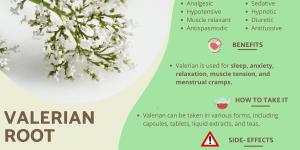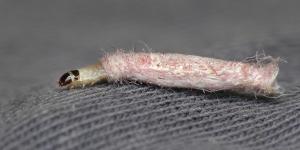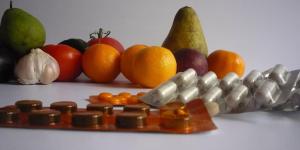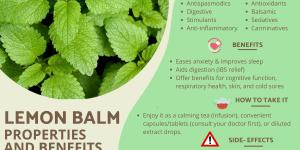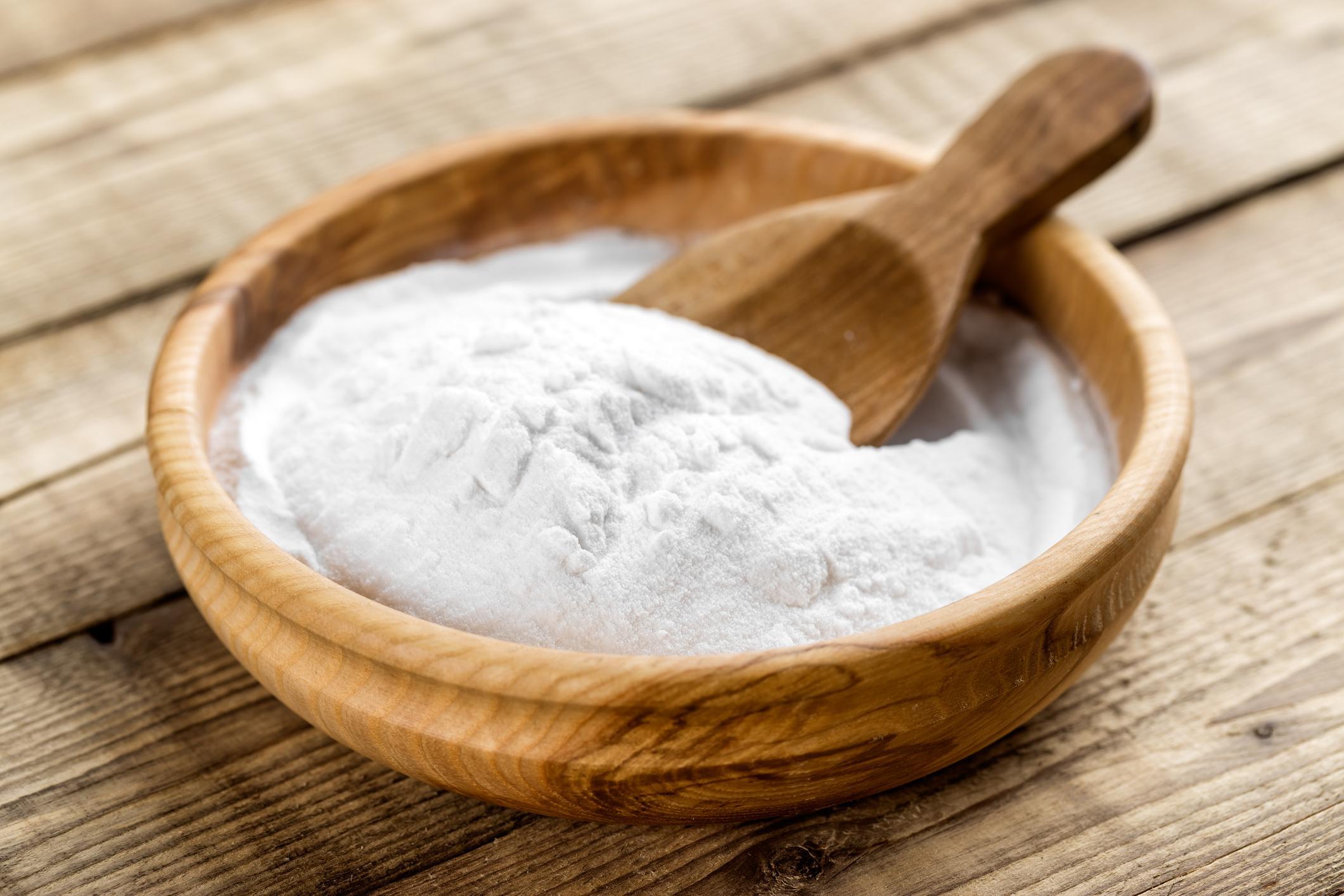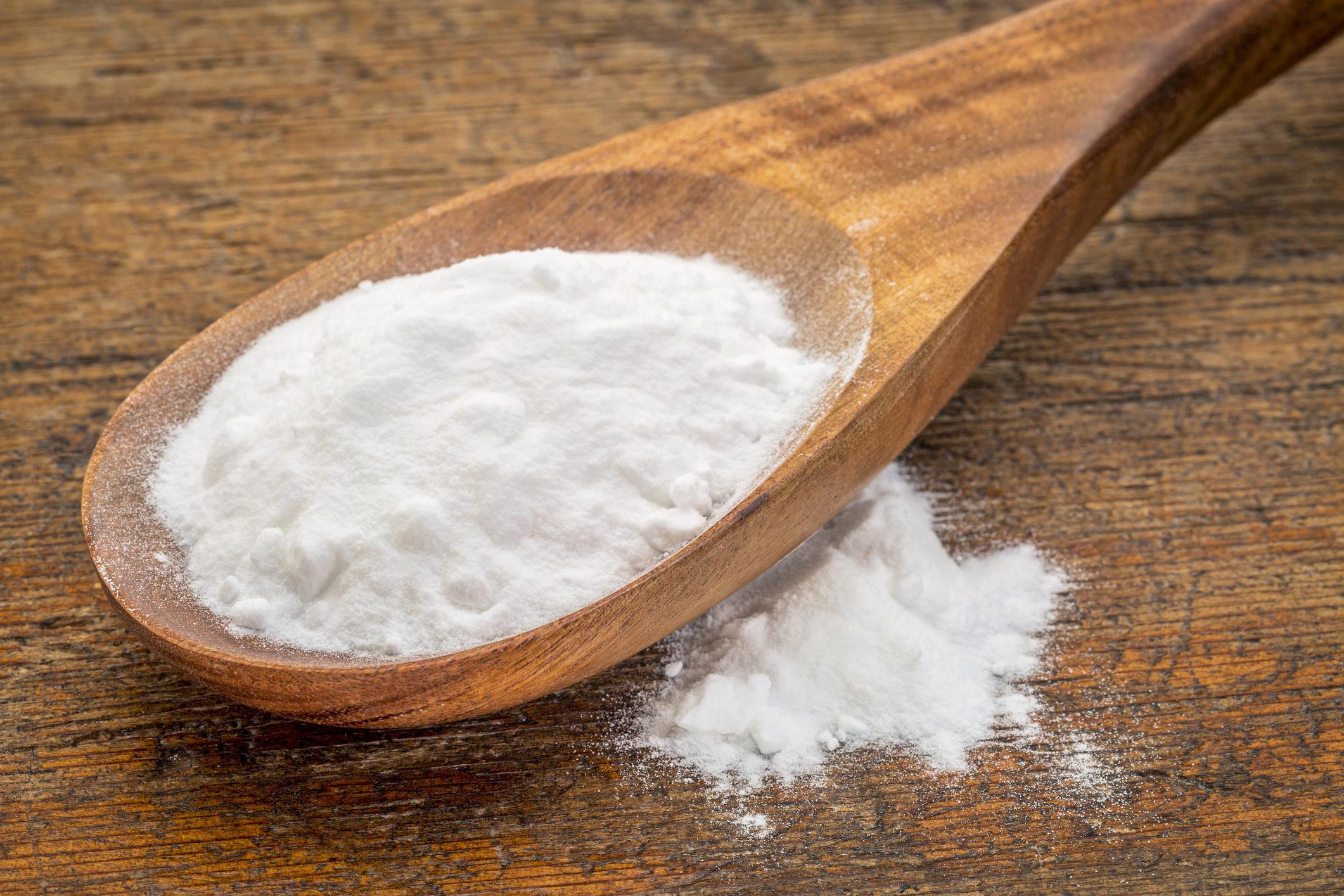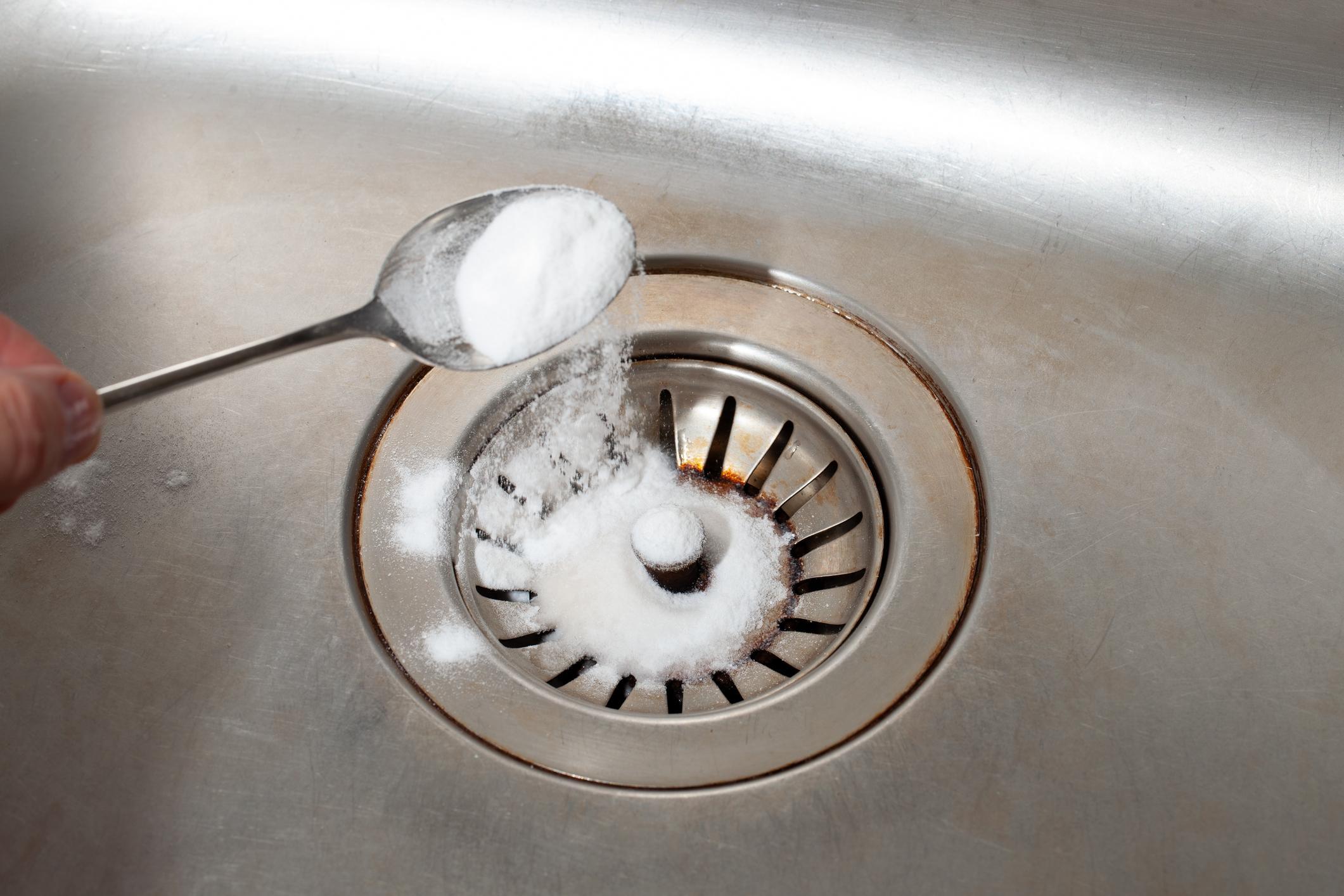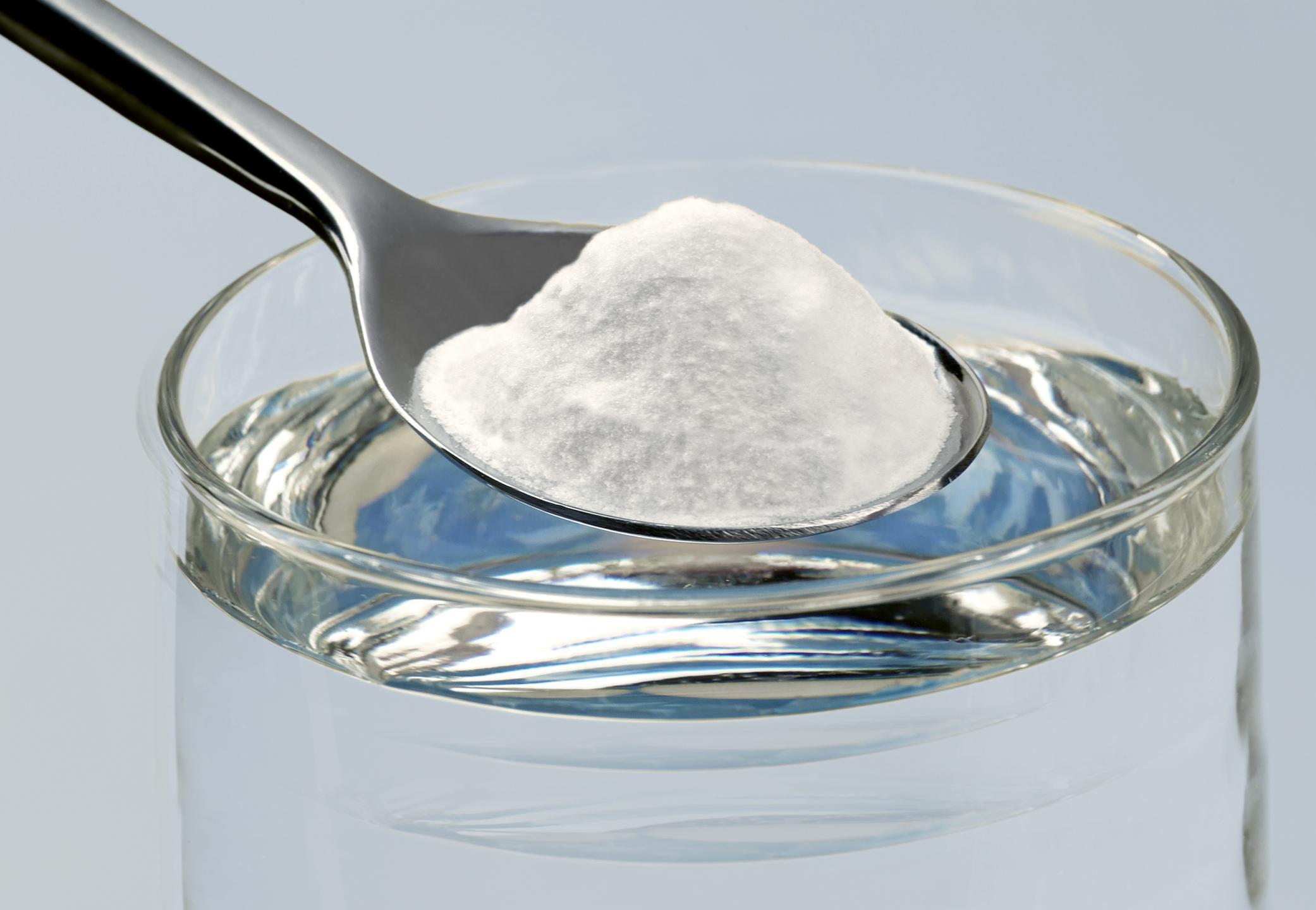What Is Bicarbonate or Baking Soda?


Baking soda, also known as sodium bicarbonate, is a white crystalline powder commonly used for baking, cooking, cleaning, and personal care products. It is a versatile ingredient that has many practical uses due to its unique chemical properties. When baking soda is combined with an acidic ingredient such as vinegar, lemon juice or buttermilk, carbon dioxide gas is produced.
This article from thedailyECO explains what baking soda is, how it works, and when it should not be used.
What is bicarbonate?
Baking soda, also known as sodium bicarbonate, is a chemical compound with the formula NaHCO3. It is composed of sodium ions (Na+), hydrogen ions (H+), carbonate ions (CO3^2-) and a single water molecule (H2O).
It occurs naturally in minerals called sodium bicarbonate. Furthermore, it is a crystalline solid that has the appearance of a fine white powder, is odorless, water-soluble, and alkaline.
When bicarbonate dissolves in a liquid, whether water, blood or urine, sodium and bicarbonate form, making the solution alkaline and neutralizing the acid. Sodium bicarbonate is a very noble product used in many households, whether for medicinal or domestic purposes, cooking or cleaning.
The chemical properties of sodium bicarbonate make it useful in a variety of applications. Its ability to act as a mild base (alkali) makes it useful in the kitchen as a leavening agent, while its mild abrasive properties and ability to neutralize acidic compounds make it useful in cleaning and personal care products.

What is bicarbonate used for?
Here are some common uses of bicarbonate:
- Cleaning kitchen utensils: Mix baking soda with water to make a paste and use it to clean ovens, microwaves and refrigerators.
- Eliminating odors: Place an open packet of baking soda in your refrigerator, cupboard or shoes to remove unwanted odors.
- Whiten teeth: Mix baking soda with water and use it as a natural toothpaste to whiten your teeth.
- Clean carpets: Sprinkle baking soda on carpets, let it sit for 15 minutes and then vacuum it up to remove odors and stains.
- Soothing insect bites: Mix baking soda with water to make a paste and apply to insect bites to relieve itching and swelling.
- Heartburn relief: Mix a teaspoon of baking soda with a glass of water and drink it to neutralize stomach acid and relieve heartburn.
- Treatment of sunburns: Mix baking soda with water to make a paste and apply to sunburned skin to relieve pain and reduce redness.
- Removing stains: Mix baking soda with water to make a paste and apply to stains in clothing before washing to remove them.
- Freshens breath: Mix baking soda with water to make a mouthwash to freshen breath and kill bacteria.
- Cleaning jewelry: Mix baking soda with water to make a paste and use it to clean jewelry, including silver and gold.
- Removing oil and grease: Sprinkle baking soda on grease and oil stains, leave for 15 minutes and then wash as usual to remove the stain.
- Cleaning baths: Mix baking soda with water to make a paste and use it to clean sinks, showers and toilets.
- Soothe sore throats: Mix baking soda with warm water and gargle with it to relieve sore throat.
- Remove rust: Mix baking soda with water to make a paste and use it to remove rust from metal surfaces.
- Exfoliating the skin: Mix baking soda with water to make a paste and use it to exfoliate the skin. This will remove dead skin cells and make the skin soft and smooth.
Overall, bicarbonate is a versatile and important compound with many practical applications.


Side effects of bicarbonate
Baking soda is generally considered safe when used in small amounts for cooking or household purposes. However, excessive consumption or use of baking soda can cause side effects such as:
- Consuming too much baking soda can cause gastrointestinal problems such as gas, bloating, and diarrhea.
- Baking soda can disrupt the balance of electrolytes in the body, which can lead to symptoms such as muscle weakness, fatigue and irregular heartbeat.
- Excessive consumption of baking soda can lead to alkalosis, a condition characterized by high alkaline levels in the blood. Symptoms of alkalosis may include nausea, vomiting, confusion and muscle twitching.
- Direct application of baking soda to the skin can cause irritation, redness, and itching. Prolonged use can also damage the skin's natural barrier and cause dryness.
- While baking soda can be used as a natural toothpaste, excessive use can damage tooth enamel and cause sensitivity.
It is important to use baking soda in moderation and follow the recommended guidelines for use.
Contraindications of bicarbonate
While baking soda is generally considered safe when used in small amounts for cooking or household purposes, there are some contraindications that you should be aware of:
- Some people are allergic to baking soda and may develop symptoms such as hives, itching and swelling.
- Baking soda may interact with certain medications such as antacids, blood pressure medications, and diuretics. It is important to talk to your doctor before using baking soda if you are taking any medications.
- Baking soda contains a lot of sodium, which can be harmful for people on a low-sodium diet or those with kidney problems. Excessive sodium intake can lead to high blood pressure and other health problems.
- It can upset the pH balance in the body and lead to alkalosis (too much alkalinity in the blood). This can lead to symptoms such as nausea, vomiting, and muscle twitching.
It is important to use baking soda in moderation and consult a doctor if you have concerns about its use.
If you want to read similar articles to What Is Bicarbonate or Baking Soda?, we recommend you visit our Natural remedies category.
- Huacasi-Supo V., et al. 2021. Effects of sodium bicarbonate mouthwash on salivary pH and oral microflora . Available at: http://www.scielo.org.bo/scielo.php?pid=S2664-32432021000200141&script=sci_arttext
- MedlinePlus. Baking soda . Available at: https://medlineplus.gov/spanish/druginfo/meds/a682001-es.html

